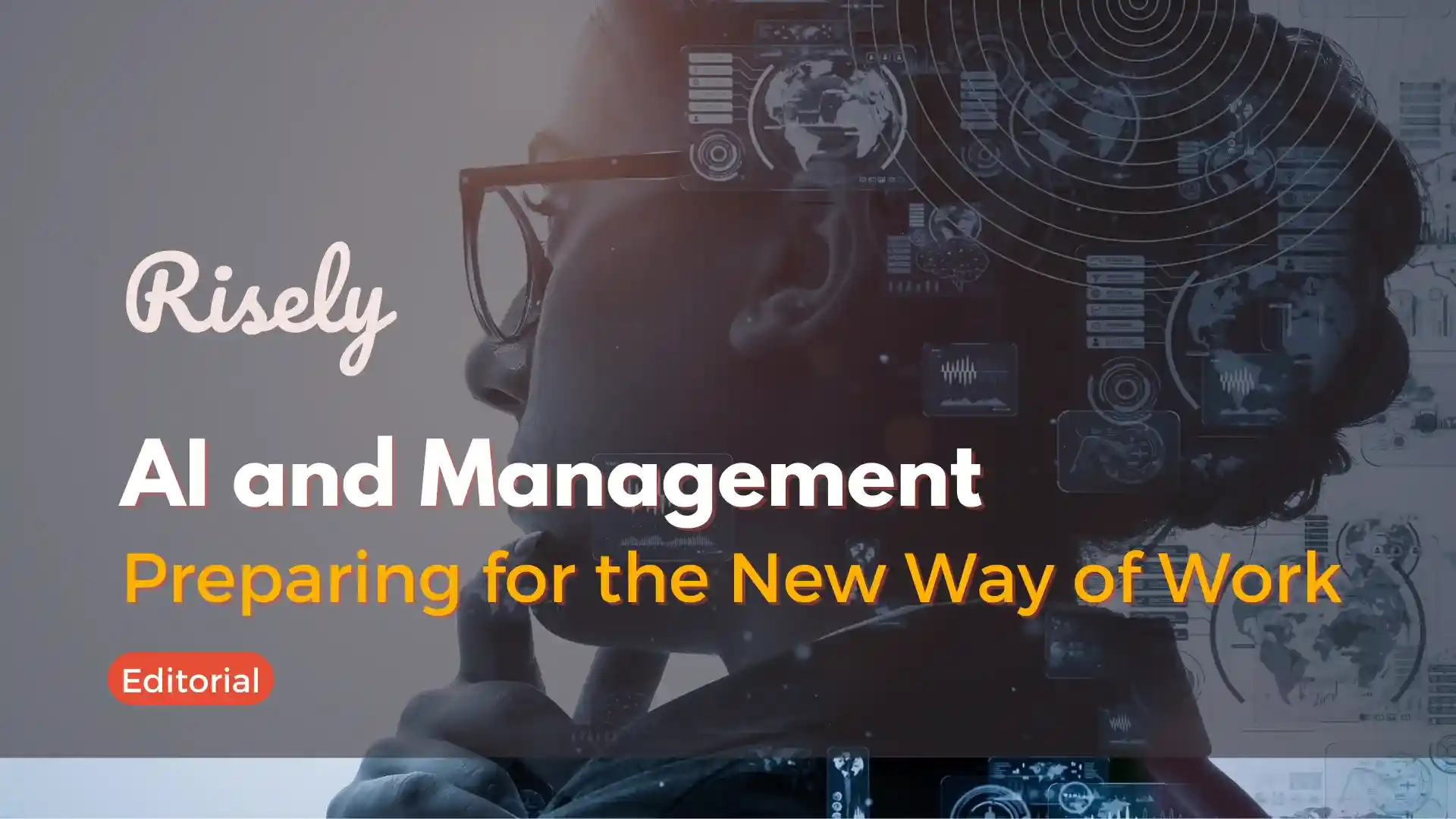7 Top Skills Every Hiring Manager Should Possess
In the dynamic landscape of human resources, a pivotal role often stands at the crossroads of an organization’s success—the Hiring Manager. These individuals are the architects of talent acquisition, responsible for identifying, evaluating, and selecting the individuals who drive an organization’s growth and innovation. In this blog, we’ll embark on a journey to explore the multifaceted role of Hiring Managers. We’ll delve into their responsibilities, challenges, and the skills that set them apart. Join us as we uncover the art and science of talent acquisition and discover why Hiring Managers are integral to the fabric of any thriving organization.What is a Hiring Manager?
A Hiring Manager is an individual within an organization who is responsible for the process of recruiting and selecting new employees. Their primary role is to identify staffing needs, define job requirements, and oversee the recruitment process to find and hire qualified candidates for various positions within the company.Roles and Responsibilities of a Hiring Manager
- Identifying staffing needs: The hiring manager assesses the workforce requirements of their department or team and determines the need for additional employees or replacements due to turnover.
- Job description development: They create or update job descriptions outlining the responsibilities, qualifications, and skills required for each open position.
- Recruitment planning: Developing a recruitment strategy, including sourcing methods, job advertising, and candidate evaluation criteria.
- Candidate sourcing: Actively seeking and attracting potential candidates through various channels, such as job postings, employee referrals, social media, and networking.
- Resume screening: Reviewing resumes and applications to identify candidates who meet the job requirements.
- Interviewing: Conducting interviews to assess candidates’ qualifications, skills, experience, and cultural fit within the organization.
- Candidate assessment: Administering skills tests, reviews, or other evaluation methods to further evaluate candidates’ suitability for the role.
- Reference checks: Contact references candidates provide to verify their employment history and qualifications.
- Selection and Offer: Collaborating with other team members and departments to make final hiring decisions and extending job offers to selected candidates.
- Onboarding: Overseeing the onboarding process for new hires, which includes orientation, training, and paperwork completion.
- Talent pipeline development: Building and maintaining relationships with potential candidates for future hiring needs, creating a talent pool.
Hiring Manager vs. Recruiter
Hiring Manager and Recruiter are two distinct roles within an organization’s hiring process, each with its own set of responsibilities and focus. Here are the key differences between a Hiring Manager and a Recruiter:Role and Responsibilities
- Hiring Manager: A department head or team leader is typically responsible for identifying staffing needs within their department or team. They define job requirements, make final hiring decisions, and oversee the integration of new hires into their team. They focus on finding the right candidate to fill specific roles within their department or team.
- Recruiter: A Recruiter is a dedicated HR professional or a specialist whose primary responsibility is to source, screen, and engage candidates for various open positions within the organization. Recruiters work across different departments and teams to identify and attract potential candidates who match the organization’s requirements.
Decision-making authority
- Hiring Manager: They have the ultimate decision-making authority when selecting candidates. They make the final hiring decisions and determine which candidates best fit their department’s or team’s needs.
- Recruiter: Recruiters do not have the final say in hiring decisions. While they play a critical role in identifying and assessing candidates, the ultimate decision rests with the Hiring Manager. Recruiters present candidates to Hiring Managers for their consideration.
Job description and requirements
- Hiring Manager: They are responsible for creating or updating job descriptions and specifying the qualifications, skills, and experience needed for the positions they are hiring for.
- Recruiter: Recruiters work closely with Hiring Managers to understand their requirements and create job postings based on the Hiring Manager’s specifications.
Candidate engagement
- Hiring Manager: While managers may participate in interviews and interact with candidates, their primary focus is evaluating candidates’ fit within their department or team. They are less involved in the initial stages of candidate engagement.
- Recruiter: Recruiters are responsible for engaging candidates throughout the entire recruitment process. They actively source candidates, conduct initial screenings, schedule interviews, and communicate with candidates.
Focus and expertise
- Hiring Manager: They are subject matter experts in their respective departments or teams. They have in-depth knowledge of the roles they are hiring for and understand the required skills and qualifications.
- Recruiter: They specialize in talent acquisition and are skilled in sourcing, screening, and assessing candidates across various roles and departments. They may not have the same level of expertise in specific job functions as Hiring Managers.
Other Interesting Reads
7 Skills needed to become a Hiring Manager
Becoming a successful Hiring Manager requires diverse skills to identify, select, and onboard qualified candidates effectively. Here are the essential skills needed to excel in this role:- Communication skills: Clear and effective communication is crucial for conveying job requirements, providing feedback to candidates, and collaborating with team members. For example, Conducting structured interviews, clearly articulating job expectations, and providing timely and constructive feedback to candidates.
- Interpersonal skills: Building rapport with candidates, colleagues, and team members is essential for establishing trust and fostering positive relationships. For example, Developing a connection with candidates during interviews, collaborating with colleagues to define job requirements, and maintaining good working relationships with team members.
- Decision-making skills: Making informed and timely hiring decisions based on a candidate’s qualifications, skills, and fit with the organization. For example, analyze candidate resumes, interview responses, and assessments to make data-driven hiring decisions and select the most suitable candidate for a role.
- Problem-solving skills: Identifying and addressing challenges and obstacles in the hiring process, such as sourcing difficulties or candidate objections. For example, Developing creative solutions to attract hard-to-find candidates, addressing complaints or concerns raised by candidates, and adapting the recruitment strategy as needed.
- Time management: Efficiently managing time to balance multiple job openings, interviews, and administrative tasks. For example, Creating and adhering to interview schedules, prioritizing tasks based on urgency, and maintaining a structured approach to recruitment timelines.
- Negotiation skills: Negotiating employment terms, offers, and salary packages with candidates. For example, Effectively negotiating offer details, such as salary, benefits, and start dates, to reach mutually beneficial agreements with candidates.
- Emotional intelligence: Recognizing and understanding candidates’ emotions, perspectives, and concerns during the hiring process. For example, Demonstrating empathy and active listening during candidate interactions, addressing candidate concerns with sensitivity, and ensuring a positive candidate experience.
Best practices to develop the skills needed by Hiring Manager
Developing the skills needed by a Hiring Manager is an ongoing process involving formal training, practical experience, and continuous learning. Some best practices to help you develop and refine the skills required for success in this role:- Education and training: Consider pursuing formal education in human resources, organizational psychology, or a related field. This can provide a strong foundation in HR principles and practices. Attend workshops, seminars, and conferences focused on HR and talent acquisition to stay updated on industry trends and best practices.
- On-the-job experience: Gain hands-on experience in HR and recruitment by starting with entry-level HR roles or recruitment coordinator positions. Seek opportunities to participate in recruitment activities, such as resume screening, interviewing, and candidate assessment, to build practical skills.
- Mentorship and networking: Seek mentorship from experienced HR professionals who can provide guidance, share insights, and help you navigate challenges—network with peers in the HR and recruitment field to exchange knowledge, ideas, and best practices.
- Skill-specific training: Identify specific skills you want to develop, such as interview techniques, negotiation skills, or data analysis, and seek targeted training or workshops in those areas.
- Leadership development: Attend leadership development programs to enhance your leadership and management skills, as Hiring Managers often lead recruitment teams.
- Utilize technology: Embrace HR software and recruitment tools to streamline processes, analyze data, and improve efficiency in hiring practices.
Conclusion
As we conclude our blog on Hiring Managers, it becomes evident that they are the unsung heroes of an organization’s success. They are the architects of talent acquisition, the guardians of culture, and the growth catalysts. In their hands lies the power to shape the organization’s future by selecting the individuals who will drive it forward. Hiring Managers are more than just interviewers; they are strategists who align recruitment efforts with the company’s vision and leaders who inspire and guide their teams to excellence. They possess a unique blend of skills, from communication and empathy to data analysis and decision-making, making them indispensable assets in human resources.Elevate your hiring skills!
Calling all Hiring Managers to take free assertive communication assessment. Enhance your ability to lead interviews and build winning teams today!
Other Related Blogs
AI and Management: Preparing for the New Way of Work
AI and Management: Preparing for the New Way of Work Nearly a century ago, celebrated economist Keynes remarked, “We are being afflicted with a new disease – technological unemployment.” As…
How to develop the 8 Conceptual Skills every Manager needs?
How to Develop the 8 Conceptual Skills Every Manager Needs? It’s no secret that success in any professional field hinges on thinking critically, strategically, and creatively. That’s where conceptual skills…
Why Do Managers Need Skill Development And Training? 6 Top Ways
Why Do Managers Need Skill Development And Training? 6 Top Ways Managers in the office have a lot of responsibilities, and it can be challenging to keep up with everything.…
How To Develop Managerial Skills Using Self-Help Methods?
How To Develop Managerial Skills Using Self-Help Methods? Every manager wants to excel at their job. However, at times you might feel ill-equipped to deal with certain situations. But worry…


